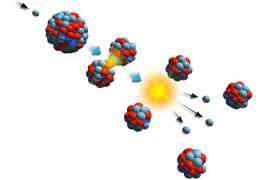The initiative is supported because it allows industry to save energy in chemical reactions.
The Hector project, carried out by the University of Zaragoza and aimed at designing microreactors heated by microwaves, has been awarded an Advanced Grant from the European Research Council.
The innovation of this initiative is that it will enable industry to save energy and raw materials in chemical reactions. The design of the new catalysts will be made with nanomaterials in order to have greater absorption of the microwaves and more selective and effective warming. Europe will finance this project with €1.85 million.
Heating these microreactors with microwaves represents an innovation with respect to the traditional method of transmitting energy from the exterior, and it will lead to a microreactor where mass transfer will be very fast. The designers assure that this project will lead to substantial improvements compared to conventional chemical processes, with significant increases in the selectivity of the reaction. To this end it will be possible to supply energy only to those areas where the reaction will take place, avoiding the possible warming of other zones.
El Periódico de Aragón
